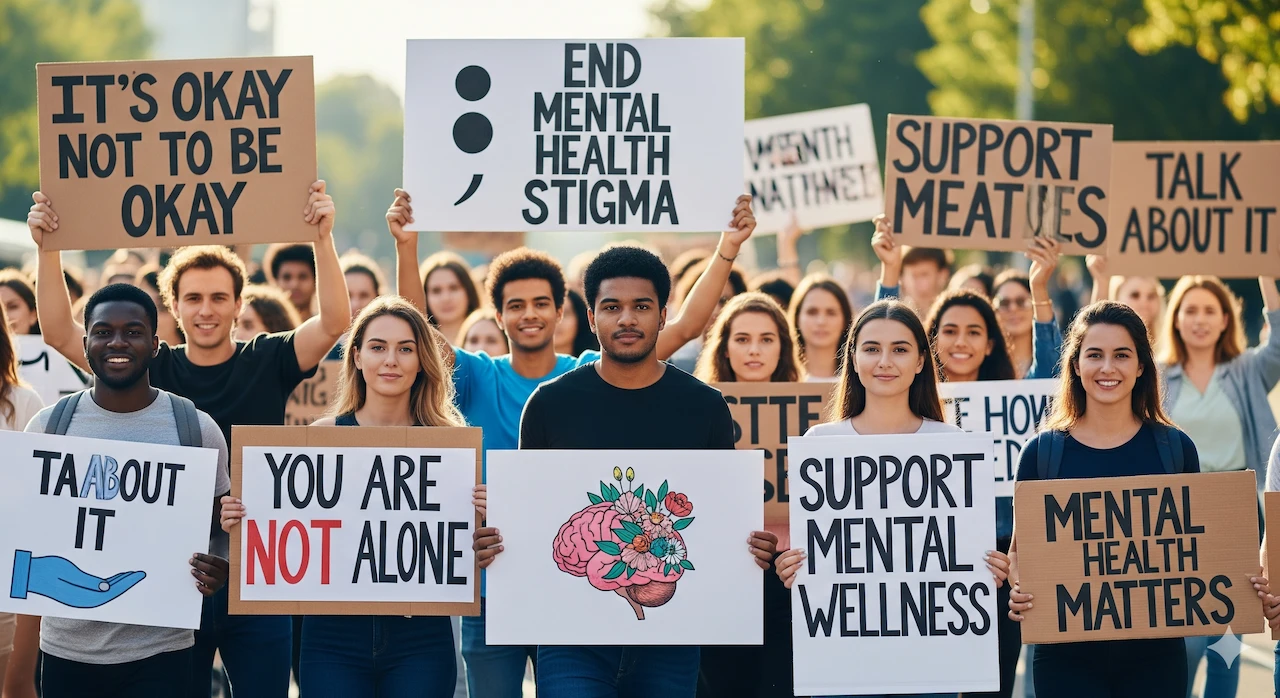GloNews10

Mental Health Awareness has become a central theme in international discussions in 2025. According to the World Health Organization (WHO), over one billion people live with mental health conditions today. The alarming numbers reflect why mental health support is no longer a personal issue but a global public health challenge.
In many countries, conversations around awareness are breaking long-held stigmas. Communities, schools, and workplaces are openly discussing issues like depression, anxiety, and stress. Governments are pressured to scale up services, and international agencies are urging urgent reforms.
The surge in mental health cases globally is tied to multiple factors—economic instability, climate anxiety, digital overload, and conflicts. Experts say that mental health support systems are not evolving at the pace of rising cases.
For instance, in low-income nations, there is fewer than one psychiatrist per 100,000 people, making treatment nearly inaccessible. Yet, Mental Health Awareness campaigns are pushing for telemedicine and digital outreach programs to reach remote areas.
The more people talk about awareness, the more communities realize that ignoring mental well-being has economic and social costs. A stressed population affects productivity, family stability, and even political stability.
In 2025, youth movements have become one of the loudest voices for Mental Health Awareness. From Nepal’s Gen Z protests to university campaigns across the United States and Europe, students are demanding institutional reforms.
These movements emphasize:
Young activists argue that without prioritizing awareness, future generations will inherit deeper psychological and social crises. Social media, despite often being blamed for mental stress, has also become a powerful tool for spreading Mental Health Awareness.

The rise of technology is transforming access to mental health support. AI-based therapy tools, online counseling platforms, and community forums now help millions. According to a Global Issues report, mobile applications designed for stress tracking, meditation, and emotional regulation are gaining global acceptance.
Digital platforms also allow anonymous conversations, breaking cultural and social barriers that often prevent people from seeking help. In countries with limited professionals, these tools provide a lifeline.
However, experts warn that while technology aids awareness, it cannot replace human therapists. AI tools must complement, not replace, human-centered care.
One of the biggest victories of Mental Health Awareness campaigns has been reducing stigma. For decades, admitting to depression or anxiety was seen as a weakness. Today, world leaders, athletes, and celebrities openly talk about their struggles, normalizing the conversation.
Stigma reduction has led to:
Still, stigma continues in rural communities and conservative cultures where awareness is still at its early stages.
Corporations are also adopting new strategies to address mental health support among employees. Flexible work hours, mental health days, and access to therapy sessions are now becoming standard in progressive organizations.
Companies recognize that Mental Health Awareness directly affects productivity, creativity, and employee retention. News reports show that businesses with strong wellness programs perform better financially and socially.
Despite progress, global Mental Health Awareness faces serious obstacles:
These challenges mean that despite growing conversations, true transformation requires deeper structural reforms.
International organizations like WHO and UN are calling for coordinated policy action. Mental Health Support is now recognized as essential for achieving the UN’s Sustainable Development Goals.
Key recommendations include:
Such policies could ensure that no one is left behind, especially in vulnerable communities.
Looking ahead, the future of Mental Health Awareness lies in:
Experts believe that if current momentum continues, by 2030, awareness campaigns will lead to stronger, more inclusive mental health systems worldwide.
The global conversation around Mental Health Awareness is not just a trend—it’s a survival necessity. With mental illnesses rising sharply, societies cannot afford silence.
By prioritizing mental health support, encouraging awareness, and combining innovation with empathy, the world can take a historic step toward healthier communities.
The news from 2025 is clear: Mental Health Awareness is no longer optional—it is the foundation of a just and thriving society.